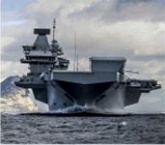
Originally Posted by
Pirate Queen

I think you ignore one salient fact: any RN ship was expected to beat any foreign ship of the same class, and often 2 or more. Any RN captain that didn't engage an enemy of the same rate would not just have been court-martialed, he himself would have expected to win, often handily.
It took a while before the capabilities of the 44-gun "pocket battleships" of the USN were appreciated, vs the 32-gun 'cruisers". Even more to the point, instead of the RN reliably having better crews than their enemies, here they were up against at least their equals, often their betters.






 Reply With Quote
Reply With Quote








Bookmarks